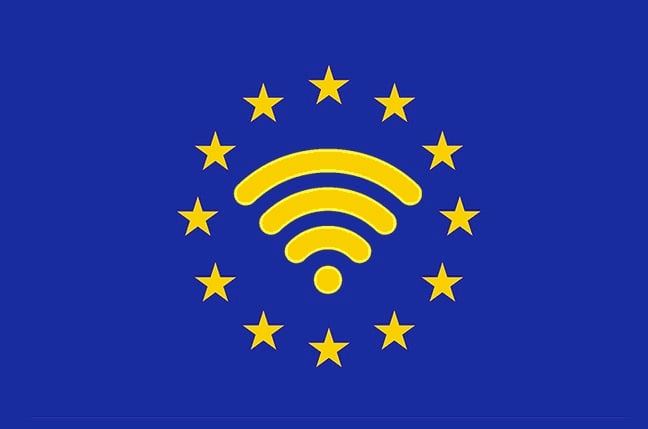EU Consultation On Future Telecoms Cools On Having Big Tech Pay For Network Builds

The European Commission's consultation on the future of the bloc's telecoms sector has concluded, and revealed majority disinterest in the idea of making big tech pay to access networks.
Such access fees were up for discussion because of their introduction in South Korea. Euro-telcos have been lobbying for the fees on grounds that they bear the cost of building and operating the networks that consumers use to consume content services operated by outfits like Netflix and Google.
The network operators argue that big tech makes much bigger profits than telcos, but they can't profit without the networks. Therefore they should provide the cash needed to build the networks to meet ever-increasing demand.
The consultation paper [PDF] is the result of a questionnaire sent to stakeholders, rather than an indicator of the EU's final policies.
The document identifies a consensus that around €300 billion per year needs to be spent on network builds – for each of the next five years. The document reports that among respondents to the consultation, only large network operators think the fees are a good idea. Others feel they're unworkable – or likely to stymie innovation.
Daniel Friedlaender, the head of Europe's Computer & Communications Industry Association, hailed that as proving "that the vast majority of stakeholders agree: introducing network usage fees would be an unnecessary and damaging regulatory intrusion that is neither required nor justified."
He argued that network usage fees represent an attempt by carriers to have their network builds subsidized, and to grow their profits. He called on Europe to find other ways to speed network builds – starting with addressing the shortage of relevant talent.
The consultation paper suggests different actions, with the European Commission summarizing its opinion as: "Respondents consider that public funding is crucial to foster investments."
- South Korean telco SK Broadband and Netflix call a truce in network payment fight
- Cloudflare opposes Europe's plan to make Big Tech help pay for networks
- Telcos fear Big Tech will bleed them until they can’t afford network builds
- Netflix shows South Korea a rerun of 'We Won't Pay Your Telcos For Bandwidth'
The Commission's summary of the consultation also found that creating a single 5G core network across the bloc is a commonly held ambition. Doing so "would result in benefits in the range of €200–300 million over the next five years." The consultation also found broad support for "a more harmonized approach to spectrum management" as that "would unlock larger market potential, making it easier to deploy cross-border services and driving investment and innovation."
That sort of bloc-wide investment, which takes advantage of the EU's economies of scale, is seen as "key to overcome investment difficulties."
Spectrum management also emerged as a security concern, with respondents suggesting that a bloc-wide approach "could improve coverage at our national border zones and considerably strengthen the EU in cases of harmful interference from third countries at our external borders."
Another of the EU's three main takeaways from the consultation was that "network virtualization, edge cloud, artificial intelligence and open networks are new technologies that will have a significant impact on the electronic communications sector."
Those technologies will usher in "software-based, highly programmable, cloud-native networks" that operate at gigabit speeds, and eventually petabits.
Another matter the paper considers is "replacement of high-risks vendors" – surely code for removing Huawei and ZTE from European networks. ®
From Chip War To Cloud War: The Next Frontier In Global Tech Competition
The global chip war, characterized by intense competition among nations and corporations for supremacy in semiconductor ... Read more
The High Stakes Of Tech Regulation: Security Risks And Market Dynamics
The influence of tech giants in the global economy continues to grow, raising crucial questions about how to balance sec... Read more
The Tyranny Of Instagram Interiors: Why It's Time To Break Free From Algorithm-Driven Aesthetics
Instagram has become a dominant force in shaping interior design trends, offering a seemingly endless stream of inspirat... Read more
The Data Crunch In AI: Strategies For Sustainability
Exploring solutions to the imminent exhaustion of internet data for AI training.As the artificial intelligence (AI) indu... Read more
Google Abandons Four-Year Effort To Remove Cookies From Chrome Browser
After four years of dedicated effort, Google has decided to abandon its plan to remove third-party cookies from its Chro... Read more
LinkedIn Embraces AI And Gamification To Drive User Engagement And Revenue
In an effort to tackle slowing revenue growth and enhance user engagement, LinkedIn is turning to artificial intelligenc... Read more

